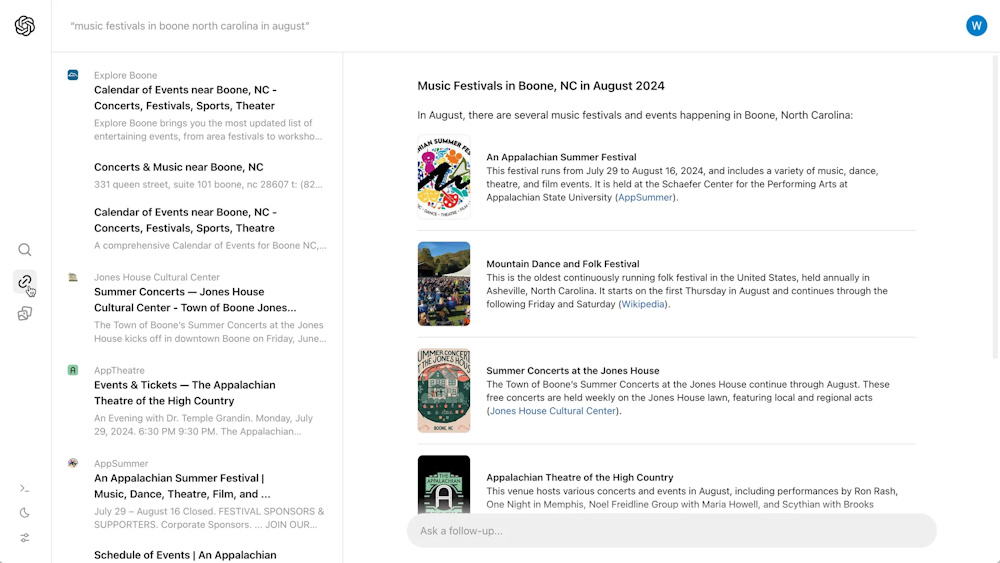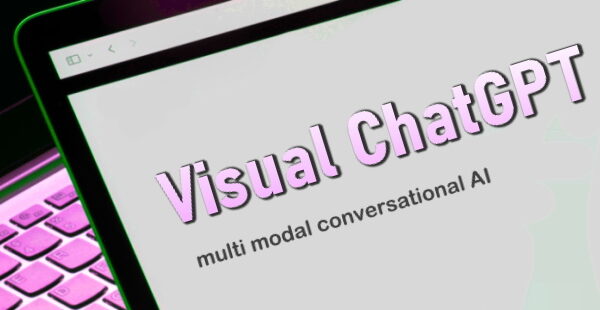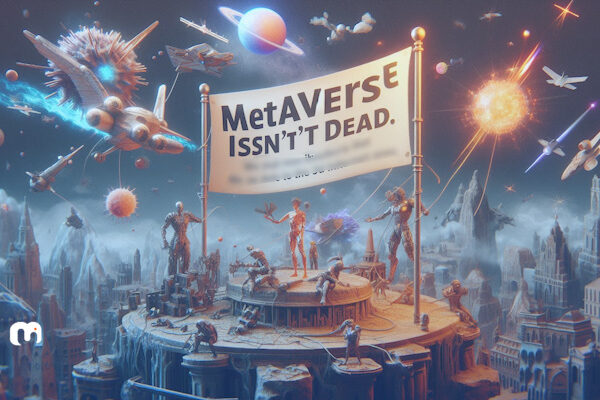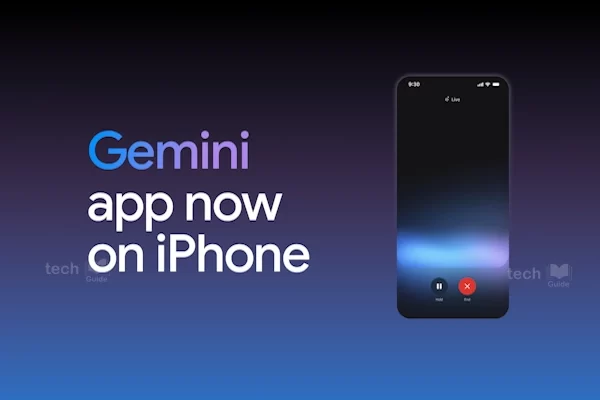
OpenAI has thrown a massive stone into the calm waters of the search engine world dominated by Google for many years with its new AI-powered search engine, “SearchGPT”. OpenAI say this isn’t just another search engine; it’s a potential game-changer that could redefine how we find information online – with real-time access to information across the internet.
How is SearchGPT Different?
Unlike traditional search engines that simply provide a list of links, SearchGPT aims to understand your query and deliver information in a human-friendly format with links to the actual content online. It’s like having a knowledgeable assistant who can summarize complex topics and provide relevant details. For instance, searching for “Sports events in, California in August 2024” won’t just give you a bunch of links; SearchGPT will provide a clear overview of the games, including descriptions and links to official websites.
A New Era of Cooperation
One of the most intriguing aspects of SearchGPT is its approach to content creators. Unlike other AI-powered search tools that have faced criticism for potentially harming publishers, OpenAI is taking a different route. They are partnering with major publishers like The Wall Street Journal and The Atlantic, to ensure that content creators benefit from the AI revolution. SearchGPT provides clear citations for information it serves, directing users back to the original sources and potentially increasing traffic to these websites.
Google’s dominance in the search engine market has been unquestioned for years. However, the rise of AI and the antitrust lawsuit against the company have created an opportunity for competitors. SearchGPT is a prime example of this shift. With its ability to provide more relevant and engaging search results, OpenAI is directly challenging Google’s position. But now it is a question about how far they can sustain.
SearchGPT is just a “prototype” for now. The service is powered by the GPT-4 family of models and will only be accessible to 10,000 test users at launch. OpenAI seems to be working with third-party partners to use direct content feeds to build its search results. Publishers shall have a way to “manage how they appear in OpenAI search features”. Also, they can opt out of having their content used to train OpenAI’s models and still be surfaced in search. OpenAI may eventually integrate the search features directly into ChatGPT.
The Financial Burden of AI
While SearchGPT is an exciting development, it’s essential to acknowledge the challenges faced by OpenAI. Developing and maintaining advanced AI models is incredibly expensive. The company has reported significant losses, raising questions about its long-term sustainability. Despite these hurdles, OpenAI’s commitment to pushing the boundaries of AI is commendable.
The Future of Search
SearchGPT represents a glimpse into the future of search. As AI technology continues to evolve, we can expect even more sophisticated and personalized search experiences. Whether it’s through visual search, voice search, or advanced language understanding, the search engine landscape is undergoing a dramatic transformation.
OpenAI’s SearchGPT is undoubtedly a bold move that could reshape how we interact with information online. As the competition heats up, we can expect to see even more innovative search tools emerge, ultimately benefiting users by providing faster, more accurate, and engaging search experiences.
Thanks for Reading. Stay Tuned!

Look forward to connecting with you!
Finally, “subscribe” to my newsletter, so that you get notified every time when I publish.
Check out some of my videos here, and do subscribe to my channel







